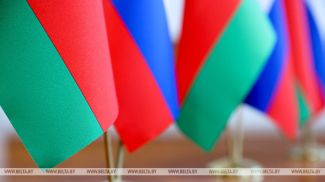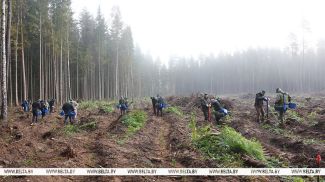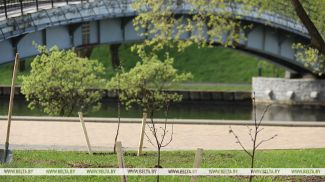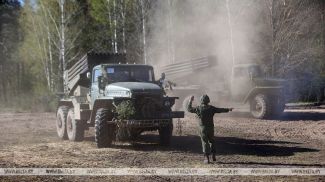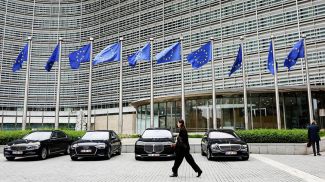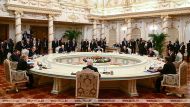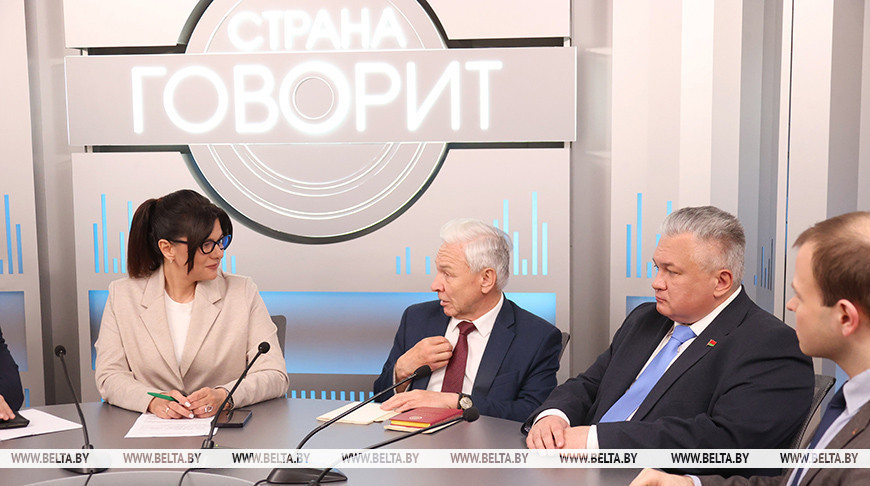
MINSK, 22 June (BelTA) - All Soviet republics helped restore Belarus after the Great Patriotic War, head of the Center for the History of Belarus of the late 18th-21st centuries of the Institute of History of the National Academy of Sciences of Belarus, Doctor of Historical Sciences, Associate Professor Nikolai Smekhovich said in a new episode of BelTA’s Nation Speaks project.
“The West often criticizes us for the fact that we constantly talk about losses, saying that we should finally ‘calm down’. I want to say as a historian that Germany today has a historical responsibility that it will never escape. What is the essence of this historical responsibility? First of all, it is responsibility for the destruction that was caused by the occupiers of Belarus,” said Nikolai Smekhovich.
What was Belarus like before Nazi Germany? “Some 1,200 enterprises were built in our country during the period of industrialization. If before 1917, we made up 0.3% of the GDP of the Russian Empire (in general, it is nothing in economic terms), then in 1937 the BSSR produced 2.2% of the GDP of the Soviet Union. In 1937, Western Belarus was still under Polish occupation. Before the revolution, more than 90% were rural residents. In 1937 almost 1.4 million were urban residents. A new generation of Belarusians embarked on the path of civilization and urban lifestyle. Economically, we were an agricultural country, undeveloped in the full sense of the word. We made a huge step forward,” said the historian.
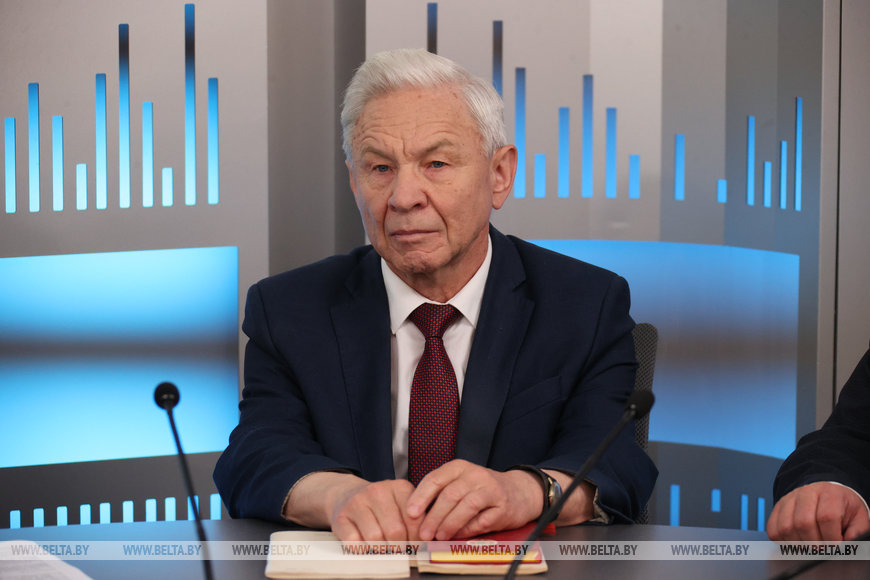
As for the Second World War, today’s textbooks say that the BSSR suffered damage equal to 35 of its budgets, but this means nothing to the current younger generation, he believes. Therefore, it is important to translate this into the language of modern concepts and calculate material damage in the same way as in the West, according to international standards.
“Human life is priceless, but when a person is a victim of terrorists or genocide, there are certain criteria, payments to relatives, victims and so on. What criteria? Take 11 September – victims were paid $1 million to $1.6 million by international standards of the United States of America. If we take $1 million, the moral and material damage of the BSSR has already been caused by $1 trillion. There were more than 200 cities and more than 12,000 villages burned and destroyed during the occupation. Nearly 10,000 kolkhozes [collective farms] were destroyed together with all equipment. As for livestock that was kept in the collective farms, 2 million heads of cattle, 1.5 million horses and many more were taken away. When the collective farms were freed and were gradually resuming operation, there one cow and two pigs left in each, the scientist said.
The territory of Belarus was supposed to provide the German front units with food, so as not to transport it from Germany. “We were thrown back to the 19th century time in terms of economic development. To be more precise, to the first half of the 19th century. According to our calculations, material damage is another $1 trillion. This money would be enough to build 50 completely new cities for about 100,000 population each, such as the city of Molodechno,” he said.
Out of 240,000 people who lived in Minsk before the war, only about 80,000 survived and the city was destroyed by 90%. There were discussions to move the center of Minsk to the area of the present Zavodskoi District, but the decision was taken leave it intact, because the Government House survived the war.
“Our country was restored by all Soviet republics. Stalingrad and Leningrad were our twin cities. Bricks were brought from Stalingrad, we have these bricks laid in all houses on Independence Avenue, as a symbol of the brotherhood of our peoples. Leningrad provided us with designs for Nevsky Prospekt buildings to help us restore buildings and helped us restore the monument to Lenin. Minsk changed and became beautiful and modern,” the historian explained.




